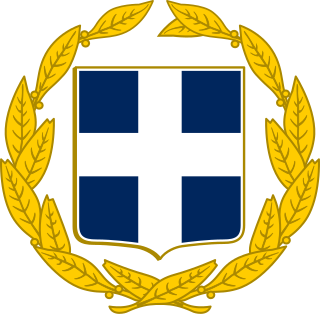
Bosnia and Herzegovina is a country in Southeast Europe, situated on the Balkan Peninsula. It borders Serbia to the east, Montenegro to the southeast, and Croatia to the north and southwest. In the south it has a 20 kilometres long coast on the Adriatic Sea, with the town of Neum being its only access to the sea. Bosnia has a moderate continental climate with hot summers and cold, snowy winters. In the central and eastern regions, the geography is mountainous, in the northwest it is moderately hilly, and in the northeast it is predominantly flat. Herzegovina, the smaller, southern region, has a Mediterranean climate and is mostly mountainous. Sarajevo is the capital and the largest city.

The economy of Bosnia and Herzegovina is a transitional, upper middle income economy. Bosnia and Herzegovina declared independence from socialist Yugoslavia on 1 March 1992. The main trading partners are Germany, Italy, Austria, Turkey and other neighboring Balkan countries.

The Armed Forces of Bosnia and Herzegovina is the official military force of Bosnia and Herzegovina. The BiH armed forces were officially unified in 2005 and are composed of two founding armies: the Bosniak-Croat Army of the Federation of Bosnia and Herzegovina (VFBiH) and the Bosnian Serbs' Army of Republika Srpska (VRS).

The Hellenic Armed Forces are the military forces of Greece. They consist of the Hellenic Army, the Hellenic Navy, and the Hellenic Air Force.

The Albanian Armed Forces are the military of Albania and were formed after the declaration of independence in 1912. Today, it consists of the General Staff, the Albanian Land Force, Albanian Air Force and the Albanian Naval Force.

Naser Orić is a former Bosnian military officer who commanded Army of the Republic of Bosnia and Herzegovina (ARBiH) forces in the Srebrenica enclave in eastern Bosnia surrounded by Bosnian Serb forces, during the Bosnian War.
The Army of Republika Srpska, commonly referred to in English as the Bosnian Serb Army, was the military of Republika Srpska, the self-proclaimed Serb secessionist republic, a territory within the newly independent Bosnia and Herzegovina, which it defied and fought against. Active during the Bosnian War from 1992 to 1995, it continued to exist as the armed forces of RS, one of two entities making up Bosnia and Herzegovina, until 2006 when it was integrated into the Armed Forces of Bosnia and Herzegovina. Forces of the VRS engaged in a number of campaigns, including Operation Corridor 92, Operation Vrbas '92, Operation Bura, and Operation Spider; they were also involved in the siege of Sarajevo, as well as the Srebrenica massacre.

The Bosnian War was an international armed conflict that took place in Bosnia and Herzegovina between 1992 and 1995. The war is commonly seen as having started on 6 April 1992, following a number of earlier violent incidents. The war ended on 14 December 1995 when the Dayton accords were signed. The main belligerents were the forces of the Republic of Bosnia and Herzegovina, the Republic of Herzeg-Bosnia, and the Republika Srpska, the latter two entities being proto-states led and supplied by Croatia and Serbia, respectively.

The Oslobođenje is the Bosnian national daily newspaper, published in Sarajevo. It is the oldest daily newspaper still in circulation in the Bosnia and Herzegovina. Founded on 30 August 1943, in the midst of World War II, on a patch of territory liberated by Partisans, in what was otherwise a German-occupied country, the paper gained recognition over the years for its high journalistic standards and is recipient of numerous domestic honors and international awards in a branch.

The Bosnia and Herzegovina national football team represents Bosnia and Herzegovina in men's international football competitions, and is governed by the Football Association of Bosnia and Herzegovina. Until 1992, Bosnian footballers played for Yugoslavia.

Milorad Dodik is a Bosnian Serb politician serving as the 8th president of Republika Srpska since 2022. Previously, he served as the 7th Serb member of the Presidency of Bosnia and Herzegovina from 2018 to 2022.

The Republic of Bosnia and Herzegovina was a state in Southeastern Europe, existing from 1992 to 1995. It is the direct legal predecessor to the modern-day state of Bosnia and Herzegovina.

The Army of the Republic of Bosnia and Herzegovina, often referred to as Bosnian Army or Bosniak Army, was the military force of the Republic of Bosnia and Herzegovina. It was established by the government of the Republic of Bosnia and Herzegovina in 1992 following the outbreak of the Bosnian War.
Fikret Abdić, also known as Babo, is a Bosnian politician and businessman who first rose to prominence in the 1980s for his role in turning the Velika Kladuša-based agriculture company Agrokomerc into one of the biggest conglomerates in SFR Yugoslavia. He won the popular vote in the Bosnian presidential elections of 1990.

Kalinovik is a town and municipality of Bosnia and Herzegovina, located in the Republika Srpska entity. As of 2013, the town has a population of 1,093 inhabitants, while the municipality has 2,029 inhabitants.
Bosnia and Herzegovina participated in the Eurovision Song Contest 2007 with the song "Rijeka bez imena" written by Aleksandra Milutinović and Goran Kovačić. The song was performed by Marija Šestić. On 16 January 2007, the Bosnian broadcaster Radio and Television of Bosnia and Herzegovina (BHRT) revealed that they had internally selected Marija Šestić to compete at the 2007 contest in Helsinki, Finland. Her song, "Rijeka bez imena", was presented to the public during a show entitled BH Eurosong 2007 on 4 March 2007.
Bosnian mujahideen, also called El Mudžahid, were foreign Muslim volunteers who fought on the Bosnian Muslim side during the 1992–95 Bosnian War. They first arrived in central Bosnia in the second half of 1992 with the aim of helping their Bosnian Muslim co-religionists in fights against Serb and Croat forces. Initially they mainly came from Arab countries, later from other Muslim-majority countries. Estimates of their numbers vary from 500 to 6,000.

General Sir Patrick Nicholas Yardley Monrad Sanders,, is a senior British Army officer serving as Chief of the General Staff since June 2022.
The 2015 Zvornik police station shooting happened on April 27, 2015 when a gunman attacked a police station in Zvornik in the Republika Srpska entity of Bosnia and Herzegovina. He killed a police officer and wounded two others before being shot dead by other police officers. This was the first attack of its kind in Republika Srpska; attacks have occurred in the other entity, the Federation of Bosnia and Herzegovina, including the 1997 Mostar car bombing.

Zoran Tegeltija is a Bosnian Serb politician serving as director of the Indirect Taxation Authority of Bosnia and Herzegovina (ITA) since June 2023. He previously served as Minister of Finance and Treasury from January to June 2023. He also served as Chairman of the Council of Ministers of Bosnia and Herzegovina from 2019 to 2023.



















